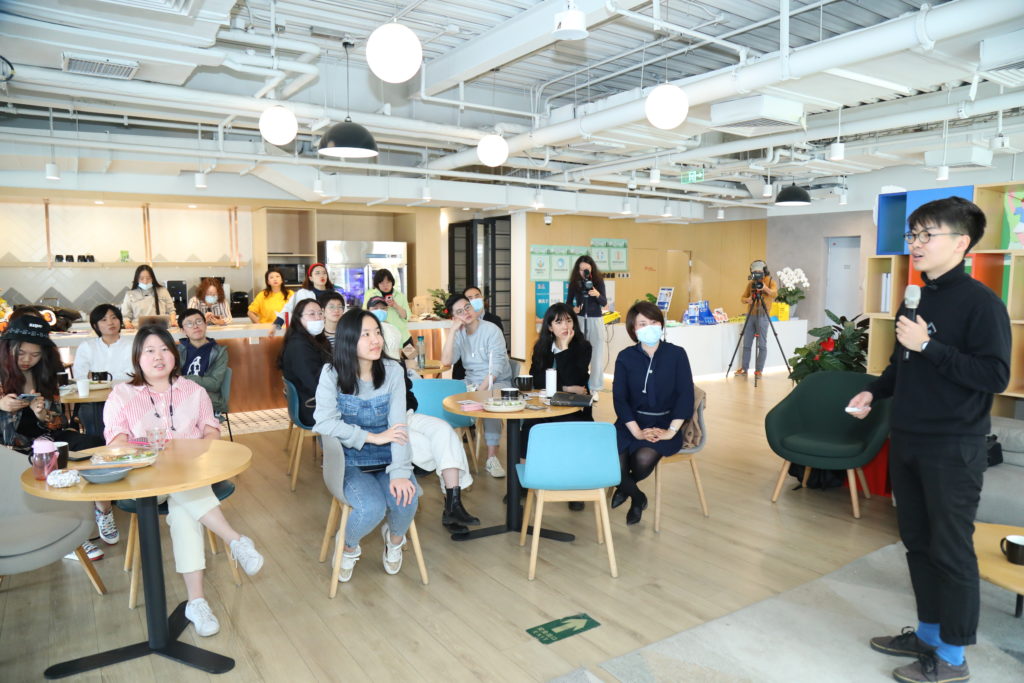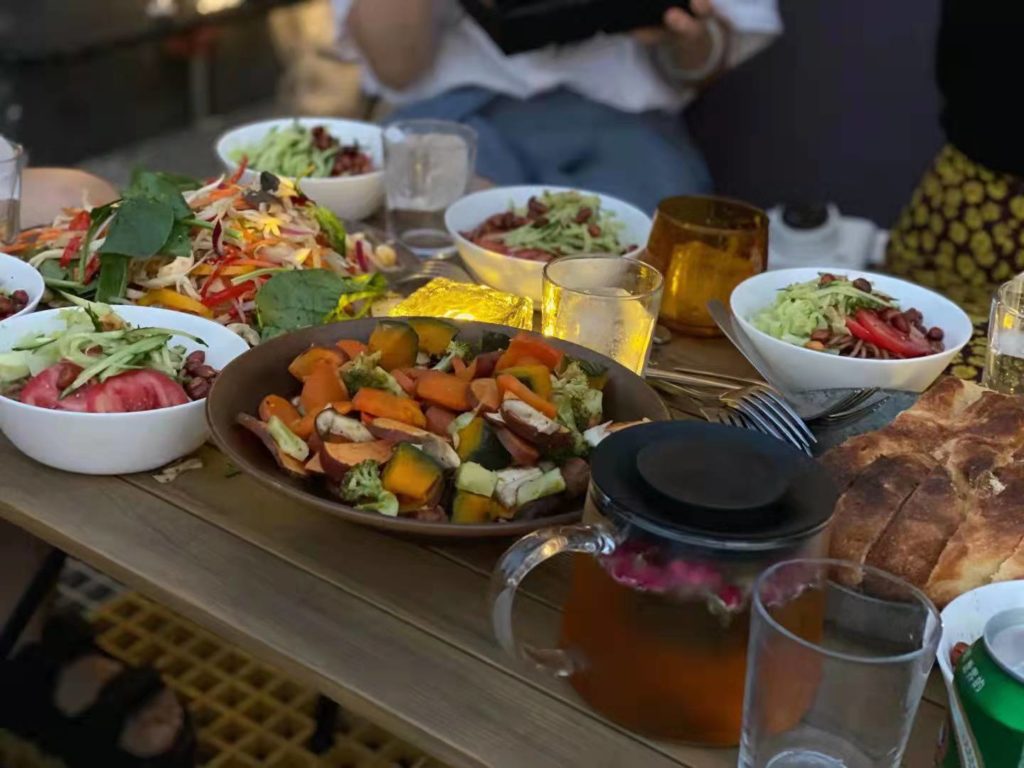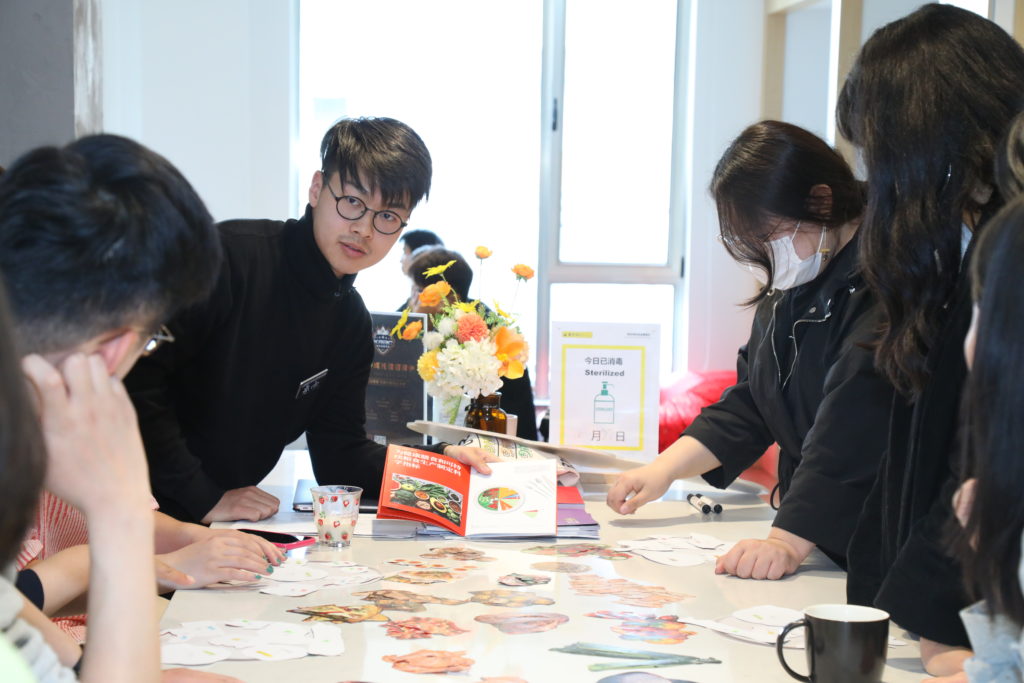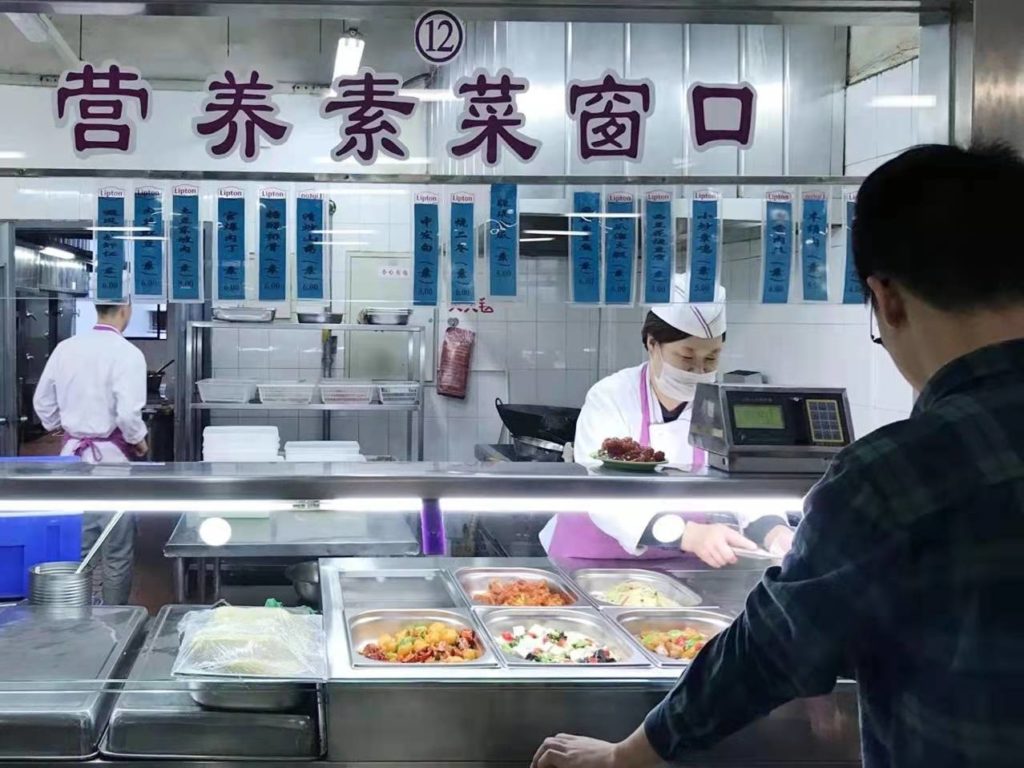From China to the World: A young person’s passion for food systems transformation
Originally published on Um So Planeta in portuguese: Read here
Ouyang Huiyu is an Act4Food Act4Change youth leader from China. He is passionate about food systems transformation and urban food governance, and he enjoys cooking. In this blog, Huiyu shares how he became involved in the food systems universe and highlights some of the amazing work he’s done over the past years.
My name is Ouyang Huiyu (欧阳惠雨). I was born in Tianjin, a coastal city in Northern China and I am currently living in Beijing. I graduated in June 2020 and then started my career at the Good Food Fund as a food policy officer.
I hold a master’s degree in urban planning, a bachelor’s degree in urban planning with a minor in sociology from Tsinghua University. I was also enrolled in the Human Rights Master Program at Peking University Law School. Unlike most of my classmates who studied science at high school, I didn’t major in engineering. I believe it is more critical to learn about how systems work and how decisions are made to really address issues like inequality and unsustainability.
At university, I acted as a youth leader, building a network of motivated youths, empowering student groups to launch campaigns and create changes on their campuses through food. And that’s how I connected with the Good Food Fund. At the Good Food Fund, my work aims to promote urban food governance, with a focus on the shift to a plant-forward diet.


I love cooking and one thing I cook best is Mapo Tofu! I think there must be more than a thousand ways to cook tofu, and Mapo Tofu originated from Sichuan and is very popular all over the country – even the world! In Chinese diets, tofu is a major source of plant protein. Across different regions there are so many kinds of tofu. Tofu really reflects the essence of Chinese food cultures.
I also love Middle Eastern cuisines. I often make hummus. What’s interesting is that, recently when I had dinner with my friends at a vegan restaurant, there was a dish called “Mapo Tofu with Hummus”! How magical it is that cooking connects different cultures, experiences, and people?
I believe, everyone should be able to enjoy healthy diets from sustainable food systems and benefit equally from food systems. Yet our current food systems are unsustainable and fragile. Poverty and hunger remain severe in many parts of the world. The production and consumption of food is responsible for about one-third of global greenhouse gas emissions and 80 percent of biodiversity loss, a huge threat faced by all of humanity. With nearly one-fifth of the world’s population, China is the number one producer and consumer, and the second largest importer, meaning it has a huge impact and responsibility to transform its food systems. The rising, excessive meat consumption must be curbed.
On a positive note, China will launch its National Food and Nutrition Guideline Towards 2035 early this year (2022), with sustainability of the food system and nutritional improvement as overarching goals. I think this could be a step forward in overcoming silos to shift to healthy diets.
In 2021 I was very involved in the United Nations Food Systems Summit (UNFSS), in which China also participated, though not as enthusiastically as we expected it to, given how large it is.
In early February 2021, the Good Food Fund launched the UNFSS Action Track – 2 (AT2) China Action Hub, aiming to become a collaborative mechanism among key players in China’s food systems, to promote the Summit in China and encourage and facilitate more participation and contribution from China. In the lead up to the Summit, the Hub hosted 10 UNFSS China Independent Dialogues with incredible participation, covering topics of priority actions in AT2 but also in synergy with other ATs – school meals, food education, plant-based diets, animal welfare, food waste, rural revitalization, wet markets, just to name a few. Livestreams of these events have attracted a total of 1 million views – great opportunities for those who work in China’s food systems to get heard and hear each other, and to get to know the UN Food Systems Summit and the important topics it touches on.

Secondly, we were particularly privileged to serve as the official convener of the Mandarin component of the UNFSS small and medium enterprises (SMEs) dialogue, and the global SMEs competition. This has given us the opportunity to see the incredible energy, innovation, and potential of Mandarin-speaking SMEs across the globe. Out of the 50 winners of the Good Food For All (GFFA) SMEs global competition, there were two Mandarin-speaking SMEs: one a biodiverse and organic farm which promotes plant-based lifestyles, and the other a plant-based mince meat company. I must tell you, this award means a lot to them, and is a remarkable recognition and validation of their work, motivation, and values.
We also called for best practices in China and gave out awards in September during our 5th annual Good Food Summit.
I’m so proud to be part of Act4Food Act4Change! My colleague Yuhua and I convened a mandarin Dialogue on the Actions4Change with nearly one hundred youth participants who really amazed us with their insights and ambition for bold actions. In August, the UNFSS-AT2 China Action Hub launched a “Food Literacy” contest for college students in China. About 100,000 people participated in the contest, signed the Act4Food pledge, and voted for the Actions4Change (A4C).
I think the 17 Actions4Change provide people a great opportunity to understand the complexity of food systems. The concept of food systems is still novel for many of us. People think of reducing waste or ending hunger when they consider food issues, but many people aren’t aware of how our diets really link to not only our health but also the health of the animals and our planet. Promoting the 17 Actions4Change really educated the public that food is a systematic issue and requires systems approaches to change. Beyond promoting the campaign, we have also translated some really useful learning resources like the What Are Food Systems pamphlet by GAIN, and a Coursera course Transformation of the Global Food System, as we really don’t have these kind of resources to educate people, especially the younger generations, on food systems. The youth cohorts who have been involved I in this process have really displayed a great effort.
I believe youth could be our biggest hope for making meaningful change, because they could have both better systems thinking when it comes to food systems and climate change, and a sense of a global civic duty. Young people can do so many things, eat a plant-forward healthy diet, advocate for changing menus in school canteens, do a research project on a food-related topic, and even pursue a career in food systems transformation.

At Good Food Fund, we plan to launch a food system youth development program in early 2022. This program will train young people who are passionate in transforming food systems and help them to improve their knowledge and professional skills, and link them to organizations that are deeply involved in the front line of food systems transformation. It will serve as a platform from education and training to actions, creating a community of food system changemakers and nourishing more young talents for food systems transformation. Stay tuned!
In closing, I would like to share with you some of our work:
Here is a recap of a UNFSS Pre-Summit affiliated session “Building National Food System Action Hub in China” that I curated, which touched on the topic of overcoming silos.
Here is a short video of youth voices urging the importance of food systems from a climate perspective that was produced by us and presented to a climate policymaker of China.
Here is a recap of a roundtable that I curated at the 2021 Nanjing Peace Forum and a short video of the Nanjing Good Food Declaration which shows how we engage stakeholders and promote food systems transformation at the city level.